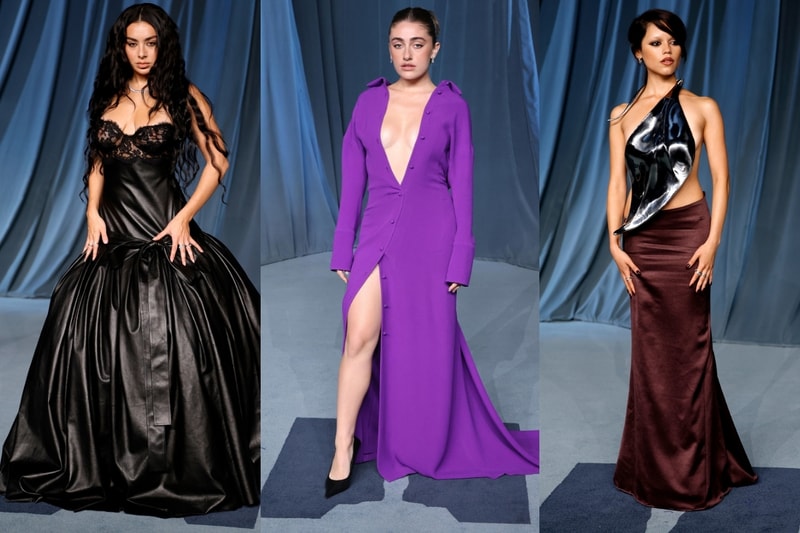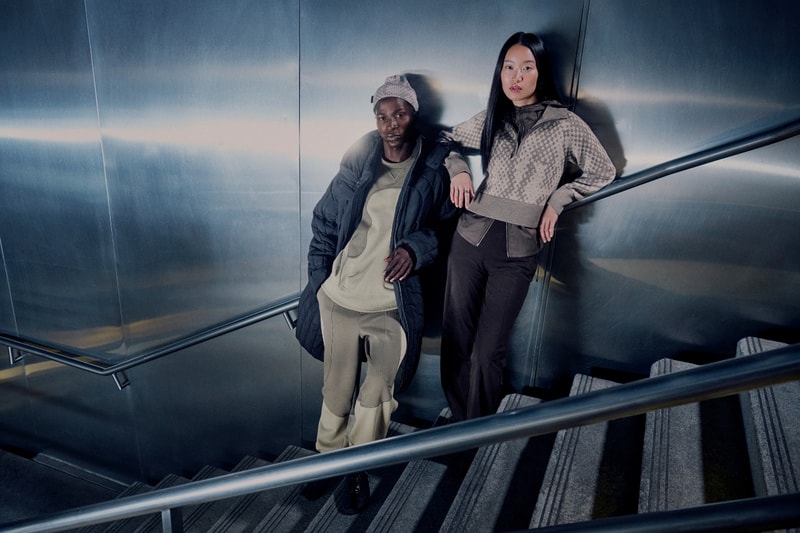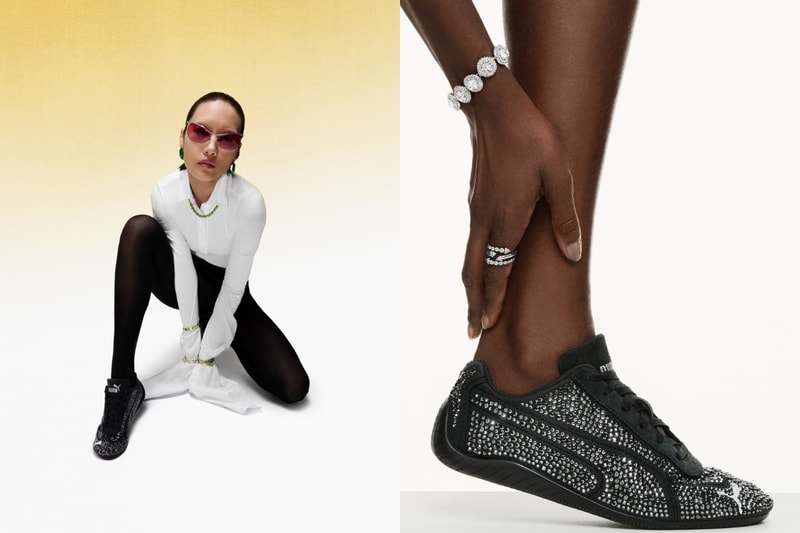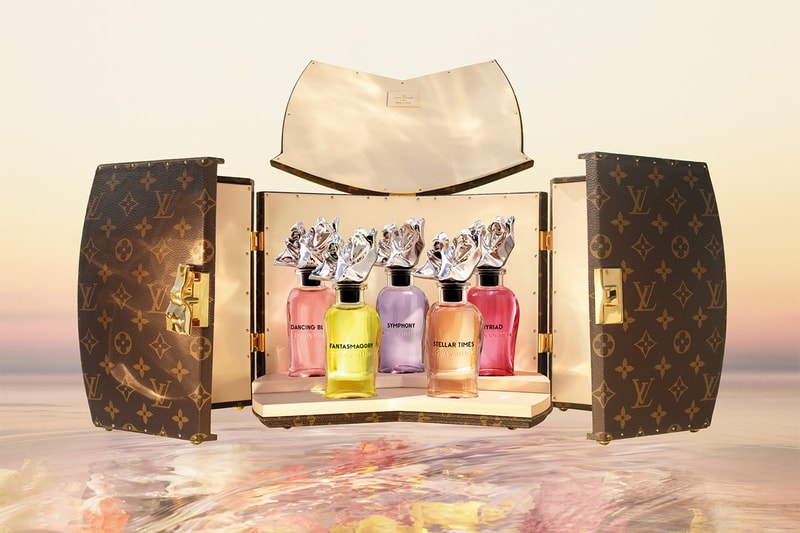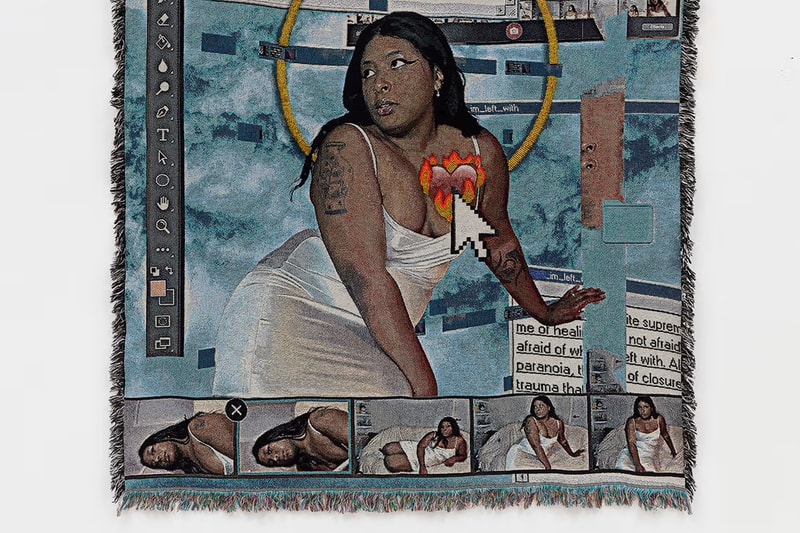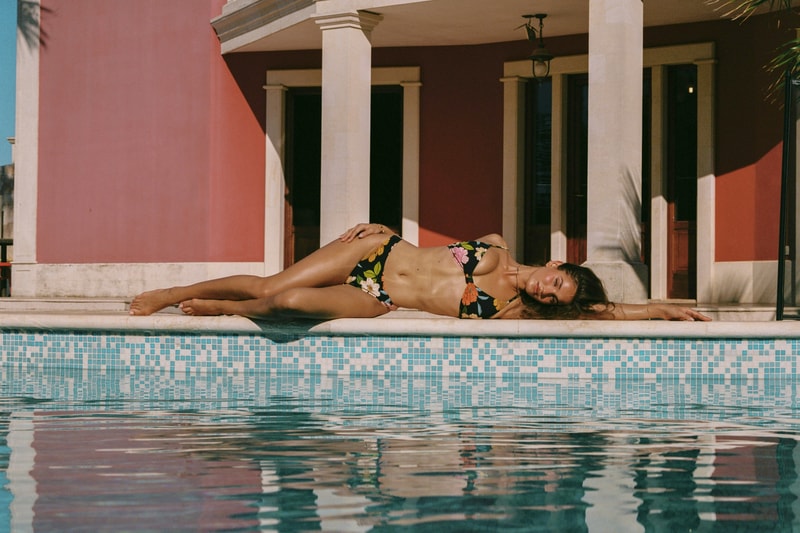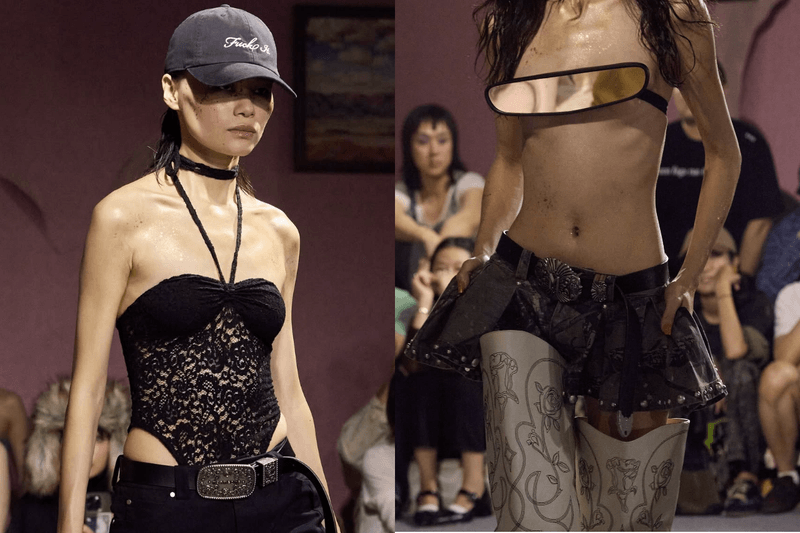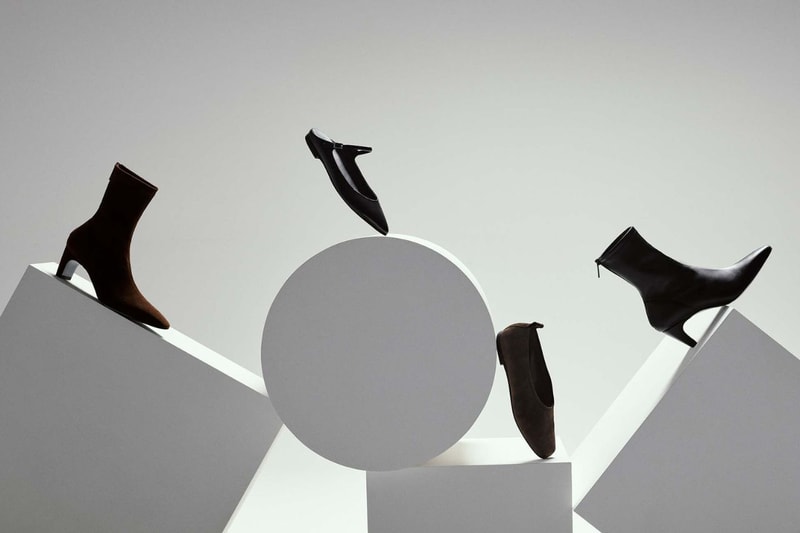EXCLUSIVE: Becoming A Better Ally with Asexual Activist Yasmin Benoit
info@hypebae.com (HYPEBAE) Fri, 17 Jun 2022 HYPEBAE
Coming out and embracing your queer identity is supposed to be a pivotal time in the lives of queer folks, yet it often becomes a dreaded moment due to a world that simply doesn't understand. For example, instead of coming out, there's now a rise in people soft launching their sexuality to avoid dealing with the mayhem. Asexual activist Yasmin Benoit has had this same experience -- especially considering her line of work with modeling has led to occasional lingerie modeling.
For those who aren't aware, asexuality is a lack of sexual attraction to others. However, this does not mean that asexual individuals do not have a sexual capacity, they just don't feel inclined to share it with others. Sexual pleasure is not only to be shared with others, there's also the sexual relationship you have with yourself, and that shouldn't invalidate one's asexuality.
"It's hard to come out as something if no one knows what the hell you're talking about, Benoit shared with Hypebae. "No one thought asexuality was a real thing... I found trying to come out so useless that I just stopped doing it after a while. I became great at avoiding the topic of sexuality and living by my own personal 'don't ask, don't tell' policy." That's why it's important for us to prioritize becoming better allies. It's not the job of queer folks to coddle us through their own journey of becoming. But, in the case of Yasmin Benoit, she's happy to put you on game -- so listen up.
There’s an overall lack of understanding within our society about the asexual experience. How did this impact your coming out journey?
Totally. It's hard to come out as something if no one knows what the hell you're talking about. Having a word for what I was experiencing - or not experiencing - made absolutely no difference. No one thought asexuality was a real thing, they still thought it was some kind of personality flaw, a physical issue or a lifestyle choice. When I'd say, "I'm asexual," I'd just get, "No, you're just [insert assumption here.]"
I don't think I successfully came out until I was in my early 20s and it was documented in the media. People believe what they read more than what they actually tell them for some reason, it's like a news outlet is a verification. That was when people took it seriously and acted as I'd just come out for the first time, even though I'd been saying it for like seven years at that point.
Did you feel dysphoria when tapping into your sensual nature before coming out? How did that evolve after you came out?
Not at all beforehand. I think things got weirder after I came out. Sensual isn't necessarily the word I jump to but based on its literal definition, I guess I have always been a sensual person -- with myself. For most people, that's an expected unspoken thing, so I never felt uncomfortable about sensuality. It made perfect sense to me and I found that quite reassuring because whenever someone theorized that I must have libido issues or an issue becoming aroused, I knew that definitely wasn't the case.

Did you have any fears of embracing your love of lingerie modeling in regards to it possibly impacting your advocacy?
Yes and no! In some ways, it has had an impact, but it wasn't something I initially worried about much, because becoming an activist was never my plan. My activism came after I'd been modeling all kinds of things for years. Other people turned the "asexual lingerie model" thing into a talking point (or a gimmick), and I quickly realized that could be a help or a hindrance.
I did worry that I'd always just be seen as clickbait and not really taken seriously as a speaker or a writer or a researcher and that the focus on lingerie would drown out the rest of my message, or restrict who I can say it in front of. Like, I never thought I'd be allowed to speak at schools. But at the same time, I've also found that my image has helped me raise awareness in more sex-positive spaces as well as to a diverse range of people. I like to think that most people at this point understand that there’s more to my advocacy than my appearance.
""Sexualization can be a compliment. Hypersexualisation, not so much.""
Why do you believe it's so difficult for people to grasp that you can be a lingerie model, but not be sexually attracted to others?
It's weird, it isn't something I thought people would be so confused about. I naively believed that we were past believing that the way someone dresses has to reflect the way they experience sexual attraction. I also thought that most people were smart enough to understand that lingerie models are just selling a product, like a person in a Burger King advertisement might not actually eat their food. But I don't think it's as simple as that, it isn't just confusion. It comes from stereotyping, sexism and racism.
Some people are simplistic thinkers and observe one attribute of someone and come up with a whole bunch of other ideas, putting them in a box. They don't like it when someone is too multifaceted to fit the box, especially when it's women. There's always been judgment towards women based on their proximity to sexuality, whether it's their perceived or real. Mainly men, but sometimes women, feel the need to police and shame women for it, and they're affronted by sexual unavailability because they've already concluded that you should be, purely based on your appearance or occupation.
The experiences of queer folks range when it intersects with race. How do you believe being a Black woman has affected your experience as an out, asexual woman and advocate.
It's had a huge effect on my experience. Every single part of my experience being asexual has been impacted by my Blackness, from day one. As we mentioned before, if people sexualize you, then they can't equate that with asexuality. Black people are probably the most hyper-sexualized demographic in the world, and I know that was a big reason why people didn't believe that I was asexual for many years, even though I ticked every other box.
So I couldn't identify as asexual interpersonally, and internally, I had a hard time identifying with asexuality because all the depictions of asexual people I could find were white. White people are more likely to identify as asexual, they're more likely to be amplified and used as representation, and they're more likely to be seen as relatable by the asexual community and those outside of it. I noticed very early on in my activism that the way predominantly white audiences reacted to me talking about asexuality was very different from how they reacted to white asexual activists saying the same thing. So the space ends up being very white, and I questioned whether I was meant to be part of it.

Of course, me being in the position I'm in now is a sign of inclusion and progress. I'm glad that I can provide that representation for Black asexual people in particular because we're so often forgotten about.
Does being sexualized trigger anxiety?
No, not at all. I don't really care whether people sexualize me or not. That's their business. I care if they insist on making it mine. I care about people harassing me or bothering me with it, but as long as they're not being creepy, inappropriate or fetishistic, it's fine. Sexualization can be a compliment. Hypersexualisation, not so much.
What’s the worst stereotype you've experienced? How would you like to see allies show up in response to those moments?
I feel like the ones that get to me the most are more specific to my intersections as an asexual person doing the work that I do, rather than those that can be generalized to everyone. But if we're specifically talking about stereotypes drawn from my asexuality alone, then it's probably the one that asexuality is a manifestation of there being something wrong with you, whether it's physical, mental, spiritual or interpersonal. All of the misconceptions centered around whether we just have bad personalities, whether we're unappealing people, cold-hearted people, loveless people, and whether asexuality is some kind of disease or mental illness, all come from this idea.
The best way that allies could show up in those instances is by unpacking the emphasis that they themselves place on an allonormative (non-asexual) experience of sexuality so that they're better equipped to debunk these stereotypes and ensure that they don't perpetuate it themselves. It isn't about regurgitating slogans, allyship requires a shift in perspective.
"It isn't about regurgitating slogans, allyship requires a shift in perspective.""
Can you tell us more about the Stonewall x Yasmin Benoit Ace Project? How can we support it?
The Stonewall x Yasmin Benoit Ace Project is the U.K.'s first-ever asexual rights initiative. We're going to be producing a report on the issue of asexual discrimination in the UK, particularly in the areas of healthcare, education and the workplace. It's something I realized was very necessary years ago, as I constantly hear very harrowing stories from asexual people about their negative experiences in public services.
In 2018, The National LGBT Survey found that ace people are less likely to be open about their sexuality. We have the lowest life satisfaction rate compared to other orientations, and we're more likely to have negative experiences in healthcare. Asexuality is still a pathologized and we're 10% more likely to be offered conversion therapy as a result. These are all issues that are discussed within the ace community but there has never been a report dedicated to our experiences in the UK, which will be used to inform policy and legislative changes. I'm very grateful that I've been entrusted with this kind of initiative and I'm really looking forward to finally using my degrees to lead my own research project.
This interview has been edited and condensed for clarity.
